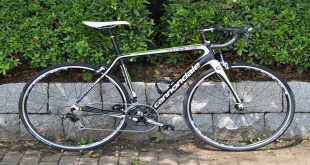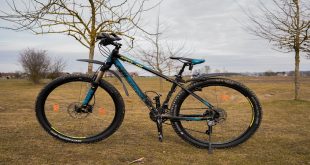Mountain bikes are suitable for commuting due to their durability and versatility on different terrains. They provide a comfortable ride and can handle rough roads, potholes, and uneven surfaces.
Additionally, their wide tires offer stability, making them a reliable choice for daily commuting.
Advantages Of Mountain Bikes For Commuting
When it comes to commuting, mountain bikes offer numerous advantages that make them an excellent option for daily transportation. From their versatility on different terrains to their ability to handle rough roads and potholes, mountain bikes have proven to be reliable and efficient for urban commuting. Additionally, their enhanced control and stability in all weather conditions and durability for daily wear and tear ensure a smooth and safe ride every time.
Versatility Of Terrain For Urban Commuting
Mountain bikes are renowned for their versatility on various terrains, making them an ideal choice for urban commuting. Whether you encounter paved roads, gravel paths, or even uneven surfaces, mountain bikes can handle them all with ease. Their rugged tires and sturdy frame provide excellent stability and traction, allowing you to confidently navigate through different environments. With a mountain bike, you can effortlessly maneuver through city streets, parks, and any other terrain you may encounter during your commute.
Ability To Handle Rough Roads And Potholes
One significant advantage of mountain bikes for commuting is their ability to tackle rough roads and potholes effectively. Compared to standard road bikes, mountain bikes typically have wider tires and a more robust frame, which absorb shocks and vibrations caused by uneven surfaces. This feature makes them an excellent choice for city commuting where roads and pathways may be poorly maintained. With a mountain bike, you can smoothly handle potholes, cracks, bumps, and other obstacles that might otherwise pose a challenge on a traditional road bike.
Enhanced Control And Stability In All Weather Conditions
Whether it’s raining, snowing, or the roads are simply wet, mountain bikes provide enhanced control and stability in all weather conditions. Their wider tires offer better grip on slippery surfaces, allowing you to maintain traction and reduce the risk of skidding. Furthermore, mountain bikes often come equipped with reliable disc brakes, ensuring efficient stopping power even in wet or muddy conditions. With a mountain bike, you can confidently commute no matter what the weather forecast may bring.
Durability For Daily Commuting Wear And Tear
Mountain bikes are built to withstand the wear and tear of daily commuting, making them a durable option for long-term use. With their robust construction, mountain bikes can handle the demands of daily riding, whether it’s the weight of your backpack, continuous starts and stops at traffic lights, or the occasional accidental bump or scrape along the way. Investing in a mountain bike for commuting means you can rely on its durability to withstand the rigors of daily use, ensuring it will last you for years to come.
Considerations For Using Mountain Bikes For Commuting
Are mountain bikes good for commuting? If you’re considering using a mountain bike for your daily commute, there are several important factors to keep in mind. While mountain bikes can offer certain advantages over traditional commuter bikes, such as durability and versatility, there are specific considerations that you should be aware of before making your decision. In this article, we’ll explore a few important considerations to bear in mind when using mountain bikes for commuting.
Additional Weight Compared To Traditional Commuter Bikes
One of the first considerations when it comes to mountain bikes for commuting is the additional weight compared to traditional commuter bikes. Mountain bikes are typically built with a sturdier frame, wider tires, and heavier components to withstand rough terrains. While this construction makes mountain bikes well-suited for off-road adventures, it can add extra weight for daily commuting.
This additional weight may have a few implications for your commute. Firstly, it may require more effort to pedal the bike, especially when riding uphill or over long distances. Secondly, it may impact your overall speed and efficiency. However, with consistent practice and adaptation, you can develop the strength and skill necessary to navigate your route comfortably and efficiently.
Potential Limitations For Long-distance Commutes
While mountain bikes are generally versatile and capable, they may have certain limitations when it comes to long-distance commutes. The wider tires and heavier frame, which contribute to stability and durability on trails, may not be as efficient on long stretches of pavement. The rolling resistance of wider tires can lead to increased effort required to maintain speed, potentially affecting your stamina and overall comfort during extended rides.
If you have a particularly long commute, it’s worth considering whether a hybrid or road bike might be a better fit for your needs. These types of bikes are specifically designed for efficient rides on paved surfaces, offering a lighter and more streamlined frame to help maximize your speed and minimize exhaustion on longer rides.
Adjustments Required For Commuting Accessories And Gear
Another important consideration when taking your mountain bike for commuting is the necessary adjustments for commuting accessories and gear. Mountain bikes, typically equipped with knobby tires and responsive suspension systems, may require some modifications to accommodate essential accessories for commuting, such as fenders, racks, lights, or baskets.
Additionally, wearing appropriate gear can improve your safety and comfort during your commute. Investing in a sturdy helmet, reflective clothing, and appropriate shoes can help you navigate various road conditions and weather elements. It’s important to take the time to ensure your mountain bike is properly adjusted and able to accommodate all the necessary accessories and gear for a safe and efficient commute.
Ultimately, the decision to use a mountain bike for commuting depends on your individual preferences, route, and specific needs. Consider the additional weight, potential limitations for long-distance commutes, and adjustments required for commuting accessories and gear before making your choice. With proper planning and adaptation, a mountain bike can provide a reliable and enjoyable commuting experience, combining the thrill of off-road excursions with the practicality of daily transportation.
Tips For Selecting The Right Mountain Bike For Commuting
Factors To Consider When Choosing A Mountain Bike For Commuting
Are you considering using a mountain bike for your daily commute? While mountain bikes are primarily designed for off-road adventures, they can also be a great option for urban commuting. However, it’s important to choose the right mountain bike that will serve your commuting needs effectively. Here are some key factors to consider when selecting a mountain bike for your daily commute:
Suitable Features And Specifications For Urban Commuting
When it comes to using a mountain bike for commuting, certain features and specifications can make your ride smoother and more comfortable. Here are some aspects to keep in mind:
- Tire Size: Opt for tires that are narrower and smoother than traditional mountain bike tires. This will reduce rolling resistance and make your rides more efficient on paved surfaces.
- Suspension: While full suspension mountain bikes offer excellent performance off-road, they might not be necessary for urban commuting. Consider a hardtail mountain bike, which has front suspension only or even a rigid frame. This will provide a level of comfort needed for potholes and uneven roads without adding unnecessary weight.
- Frame Material: Aluminum frames are a popular choice for mountain bikes due to their lightweight and durability. Look for a frame material that strikes a balance between weight and strength to ensure your bike is sturdy but not too heavy for commuting.
- Components: Focusing on reliable and low-maintenance components will be beneficial for commuting. Choose a drivetrain with a suitable number of gears for your commuting needs.
Additionally, disc brakes can provide better stopping power and reliability compared to rim brakes.
Considerations For Customization And Modifications
To tailor your mountain bike for commuting, you can make certain customizations and modifications. Here are some considerations to keep in mind:
- Tire Tread: If your commute involves mostly paved roads, you can switch to slick or semi-slick tires for enhanced speed and reduced rolling resistance. This will improve the efficiency of your rides on smooth surfaces.
- Lighting and Reflectors: Adding front and rear lights as well as reflective tape or accessories to your mountain bike will enhance visibility, especially during low-light conditions. This is crucial for your safety when sharing the road with other vehicles.
- Fenders and Racks: To make your mountain bike more commuter-friendly, consider adding fenders to protect yourself from mud and debris. Installing racks or baskets will also come in handy for carrying your belongings or groceries during your commute.
In conclusion, a mountain bike can be a great option for daily commuting if you choose the right bike and make necessary modifications to suit your needs. By considering the factors mentioned above and customizing your mountain bike accordingly, you can make your commute more enjoyable and efficient. So go ahead, explore the world of mountain bikes for commuting and make your daily rides a thrilling experience!
Essential Accessories And Modifications For Mountain Bike Commuting
Mountain bikes are not only designed for off-road adventures or thrilling downhill rides; they can also serve as an excellent mode of transportation for daily commuting. With their sturdy construction, reliable components, and all-terrain capabilities, mountain bikes offer a versatile and practical option for urban travel. However, to optimize your mountain bike for commuting, it’s important to consider some essential accessories and modifications. In this article, we will explore the must-have accessories, as well as the necessary modifications to enhance comfort, convenience, safety, and visibility for your mountain bike commuting needs.
Must-have Accessories For Mountain Bike Commuters
Equipping your mountain bike with the right accessories can significantly enhance your commuting experience. Here are some must-have accessories to consider:
- Commute-specific tires: Swap out the knobby off-road tires for smooth, puncture-resistant tires with lower rolling resistance. This will ensure a faster and more efficient ride on paved surfaces while reducing the risk of flats.
- Rear rack and panniers: A sturdy rear rack combined with panniers provides ample space to carry your belongings, groceries, or even a change of clothes. Opt for waterproof panniers to protect your items from unpredictable weather.
- Full-length fenders: Installing full-length fenders helps keep both you and your bike cleaner, especially during wet conditions. They prevent mud, dirt, and water from splashing onto your clothes and face.
- Bike lights: Front and rear bike lights are crucial for visibility, especially during early morning or evening commutes. Choose powerful, rechargeable lights that offer a bright beam and multiple modes for added safety.
- Bike lock: Invest in a high-quality bike lock to secure your mountain bike when parked. U-locks or heavy-duty chain locks are recommended for maximum security.
Essential Modifications To Enhance Comfort And Convenience
To ensure a comfortable and convenient commuting experience on your mountain bike, consider the following modifications:
- Adjustable stem: Install an adjustable stem to customize your riding position. This allows you to find the ideal balance between an upright posture for visibility and a more aerodynamic position for speed.
- Ergonomic grips: Replace your standard grips with ergonomic ones that provide better support and reduce hand fatigue during longer rides. Look for grips with built-in shock absorption for added comfort.
- Saddle upgrade: Upgrading your saddle to a more ergonomic and comfortable model can make a world of difference, especially if you have a long daily commute. Choose a saddle that fits your body shape and offers sufficient padding and support.
- Rearview mirror: Adding a rearview mirror to your handlebars or helmet allows you to keep an eye on traffic behind you without having to turn your head constantly. This increases safety by helping you make informed decisions on the road.
Safety Gear And Visibility Enhancements
When commuting on your mountain bike, prioritizing safety is paramount. Ensure visibility to other road users and protect yourself with the following gear:
- High-visibility clothing: Invest in brightly colored or reflective clothing, such as a safety vest or reflective jacket, to increase your visibility to motorists, especially during low-light conditions.
- Helmet: Wearing a properly fitting helmet is non-negotiable for any cyclist. Choose a helmet that meets safety standards and provides adequate protection for your head in case of an accident.
- Bell or horn: A bell or horn is a simple but effective way to alert pedestrians and other cyclists of your presence, especially when overtaking or navigating crowded areas.
- Reflectors: Install reflective strips or spoke reflectors on your mountain bike to enhance visibility from all angles. These reflective surfaces catch the light and make you more visible to others on the road.
Maintenance And Care For Mountain Bikes Used For Commuting
Maintenance and Care for Mountain Bikes Used for Commuting Regular maintenance routines for long-lasting performance To ensure your mountain bike stays in optimum condition for commuting, it’s crucial to establish a regular maintenance routine. By performing these routine maintenance tasks, you can prolong the lifespan of your bike and ensure it performs at its best every time you hit the road. Here are the essential maintenance routines you should follow for long-lasting performance:
- Keep your tires properly inflated: Check your tire pressure regularly using a pressure gauge. This will not only prevent pinch flats but also improve your bike’s handling and efficiency while commuting.
- Lubricate the drivetrain: Apply a high-quality bike lubricant to your chain, derailleur, and cassette regularly. This will reduce friction, improve shifting, and prevent premature wear of these crucial components.
- Check and adjust the brakes: Properly functioning brakes are essential for commuting safety. Regularly inspect the brake pads for wear and adjust the cable tension if needed. Replace worn-out brake pads promptly to maintain reliable stopping power.
- Tighten loose bolts and fasteners: Vibration from daily commuting can cause bolts and fasteners to come loose. Take the time to check and tighten these regularly, paying particular attention to the handlebars, stem, seat post, and pedals.
This will prevent any potential accidents caused by loose components. Cleaning and upkeep tips for daily commuting use Regular cleaning is necessary to keep your mountain bike in optimal condition, especially when used for commuting. Dust, dirt, and grime can accumulate and affect performance if left unchecked. By following these cleaning and upkeep tips, you can maintain the longevity of your bike:
- Start by wiping down the frame: Use a soft cloth or sponge, along with mild soapy water, to gently clean the frame. Pay attention to areas most exposed to dirt and mud, such as the bottom bracket, fork, and rear triangle.
- Clean the drivetrain: Use a degreaser and brush to remove oil, dirt, and grime from the chain, derailleur, and cassette. Rinse with water and dry thoroughly to prevent rusting.
- Take care of your wheels: Remove any debris stuck in the tire treads and inspect for cuts or excessive wear. Wipe the rims to ensure efficient braking performance.
- Protect your bike with a coat of wax or bike-specific polish: Applying a protective layer of wax or polish helps repel dirt and grime, making cleaning easier in the future.
Addressing common wear and tear issues When using a mountain bike for commuting, there are specific wear and tear issues that commonly arise. By addressing these issues promptly, you can prevent further damage and keep your bike in top condition. Here are some common issues you may encounter:
- Chain wear: Regularly check the chain for signs of wear, such as elongation or rust. Replace the chain when necessary to prevent damage to the cassette and chainrings.
- Brake pad wear: Over time, brake pads wear down and lose effectiveness. Inspect the pads regularly and replace them when they become too thin or worn to ensure reliable braking performance.
- Tire wear: Daily commuting can cause accelerated wear on your tires. Regularly inspect the tire tread for signs of significant wear or cuts. Replace worn tires to maintain grip and reduce the risk of punctures.
- Cable and housing maintenance: Check your cables and housing for fraying or signs of wear regularly. Replace them if necessary to maintain smooth shifting and braking.
By incorporating these maintenance routines, cleaning and upkeep tips, and addressing common wear and tear issues, you can prolong the lifespan of your mountain bike when used for commuting.
Frequently Asked Questions Of Are Mountain Bikes Good For Commuting?
Are Mountain Bikes Good For Commuting?
Yes, mountain bikes are a great option for commuting. Their sturdy frame and wide tires provide stability and comfort on various terrains, including rough roads and gravel paths. Additionally, mountain bikes often come with multiple gears, allowing you to easily tackle different inclines and distances during your commute.
Can Mountain Bikes Be Used On Paved Roads?
Absolutely! Mountain bikes can be used on paved roads without any issues. In fact, their robust construction and suspension make them well-suited for the occasional pothole or uneven pavement. However, keep in mind that mountain bikes may not be as efficient as road bikes on smooth surfaces due to their heavier weight and wider tires.
What Are The Advantages Of Using A Mountain Bike For Commuting?
Using a mountain bike for commuting offers several advantages. Firstly, the sturdy build and durable tires provide better stability and handling, ensuring a comfortable ride. Secondly, mountain bikes often come equipped with features like fenders and racks, allowing you to carry your belongings conveniently.
Lastly, the versatility of mountain bikes lets you explore different routes, making your daily commute more enjoyable.
Conclusion
To summarize, mountain bikes can be a great option for commuting due to their durability, flexibility, and ability to handle various terrains. They provide a comfortable and efficient ride, allowing you to navigate through both city streets and off-road trails with ease.
With the right accessories and adjustments, you can transform your mountain bike into a reliable commuter vehicle. So, if your daily commute involves diverse terrain, a mountain bike can be an excellent choice for you. Enjoy the ride!
 AmFana Pedal through life's journey: Unchain the Adventure!
AmFana Pedal through life's journey: Unchain the Adventure!





